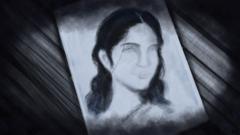Mr. Cissé's passing was confirmed by close friend and French film producer François Margolin, who recounted that the filmmaker had attended a press conference just hours before to present awards ahead of the Pan-African Film and Television Festival of Ouagadougou, or Fespaco. Following a lively discussion at the event, Mr. Cissé retired to take a nap and subsequently did not wake up.
Rising to international fame with his seminal film "Yeelen" (translated as "Light" in Bambara) released in 1987, Cissé achieved the remarkable distinction of being the first Black African filmmaker to win the Jury Prize at the Cannes Film Festival. "Yeelen" garnered critical acclaim and was nominated for the best foreign film at the 1989 Spirit Awards. Renowned director Martin Scorsese hailed the film as "one of the great revelatory experiences of my moviegoing life."
Despite facing health challenges in the past, Mr. Cissé remained active and passionate about his work until his final days, traveling globally and engaging with the cinematic community. His legacy as a champion of African storytelling and cinema is celebrated and will undoubtedly influence future generations of filmmakers.
Rising to international fame with his seminal film "Yeelen" (translated as "Light" in Bambara) released in 1987, Cissé achieved the remarkable distinction of being the first Black African filmmaker to win the Jury Prize at the Cannes Film Festival. "Yeelen" garnered critical acclaim and was nominated for the best foreign film at the 1989 Spirit Awards. Renowned director Martin Scorsese hailed the film as "one of the great revelatory experiences of my moviegoing life."
Despite facing health challenges in the past, Mr. Cissé remained active and passionate about his work until his final days, traveling globally and engaging with the cinematic community. His legacy as a champion of African storytelling and cinema is celebrated and will undoubtedly influence future generations of filmmakers.






















